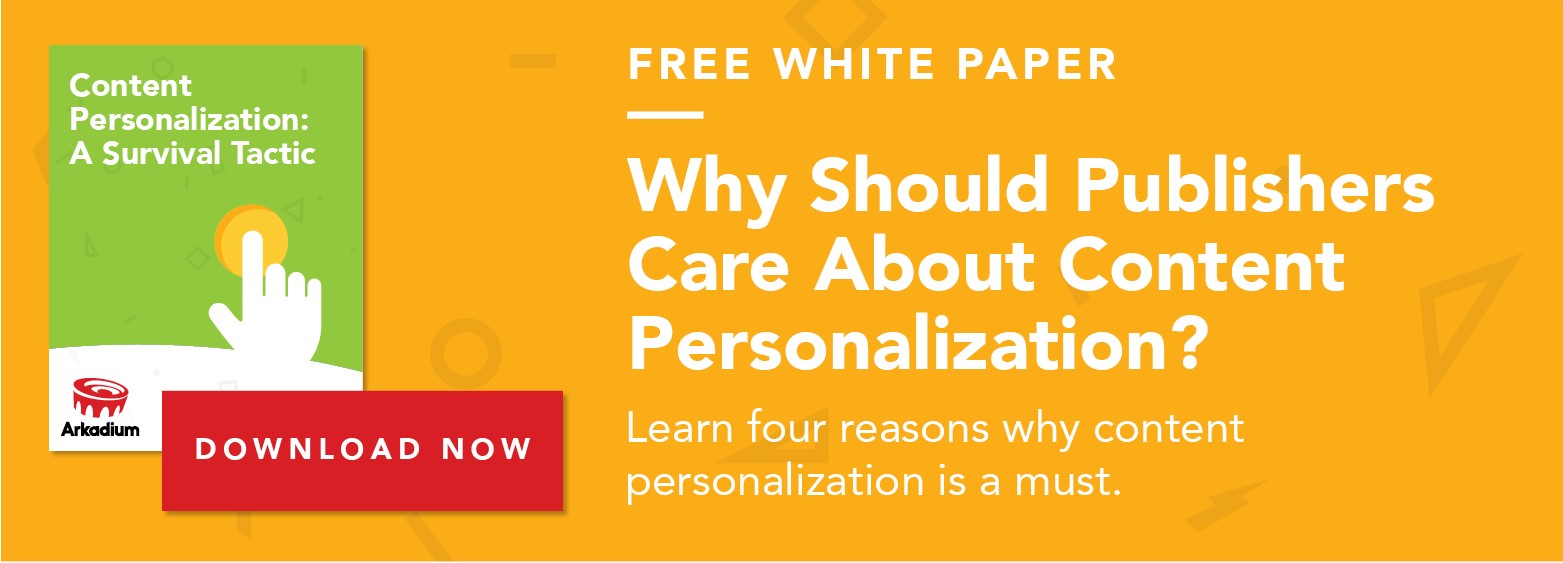How Digital Publishers are Challenging The Duopoly Dominance Part II

Tensions continue to run high between digital publishers and the Facebook-Google duopoly.
Together, Facebook and Google dominate the media industry accounting for more than 70 percent of the $73 billion spent on digital advertising yearly, and about 80 percent of all online referral traffic.1
While these numbers are jarring, digital publishers are not going down without a fight.
Recently, we wrote about how digital publishers are challenging the duopoly by working together in aggregating data and audiences, and allowing advertising brands and agencies to negotiate directly in private marketplaces.
Now, it seems another chapter is unfolding in the ongoing saga.
This time, several U.S. publications are putting aside their differences by banding together, seeking bargaining rights against Google and Facebook.2
Forming Alliances
Traditionally, antitrust laws prevent companies from forming alliances which could monopolize particular industries.3 But news publishers are seeking an exception.
The News Media Alliance, a trade group comprised of The New York Times, the Wall Street Journal, Tronc and several smaller newspapers, is asking federal lawmakers to grant an exemption from antitrust rules so that they can negotiate with Google and Facebook.4
According to NMA president David Chavern, the current laws surrounding collective action has hindered publishers’ battles against the duopoly.
“The digital giants benefit from legal precedent against collective action that has a chilling effect on publishers,” he said. “Antitrust enforcers have declined to address Google and Facebook’s growing dominance, enabling the digital giants to roll up the information economy.”5
Through antitrust clearance, the NMA hopes to discuss requests with Google and Facebook.
Such requests include a fair distribution of revenue and data, more effective subscription models, protection for publishers’ intellectual property and “solutions to secure the long-term availability of local journalism produced by America’s newsrooms.”6
While the duopoly’s control over digital advertising dollars remains a legitimate concern, the NMA suggests that considering Facebook and Google as reliable news sources is perhaps the biggest threat of all to publishers.
A Future for Better Journalism
As the demand for real-time news increases and audiences continue to receive their news online, publications have been forced to rely on the duopoly for distribution. Because Facebook and Google are dominant in online news traffic, publishers must “surrender their content and play by their rules on how news and information is displayed, prioritized and monetized,” per the NMA.7
However, the NMA claims that Facebook and Google lack the proper resources and ability to guarantee the accuracy of reporting – especially in a tumultuous media industry littered with fake news and click bait.8
“[Facebook and Google] don’t employ reporters: They don’t dig through public records to uncover corruption, send correspondents into war zones, or attend last night’s game to get the highlights,” Chavern said.9
Additionally, many of the news organizations included in the NMA say the duopoly has taken advantage of them.10
Chavern continues, “They expect an economically squeezed news industry to do that costly work for them”.11
The message the NMA hopes to send to the duopoly is that serious reporting is both time consuming and expensive. But by working together, publications and digital giants could ensure real journalism has a future.12
“To ensure that such journalism has a future, the news organizations that fund it must be able to collectively negotiate with the digital platforms that effectively control distribution and audience access in the digital age,” says Chavern.13
Indeed, it seems publishers have determined that the only way to leverage the digital behemoths is to band together in the name of quality journalism. It’ll be interesting to see how this story unfolds.
1. Williams, Trey. “Newspapers ask Congress to allow them to band together to fend off Google, Facebook.” MarketWatch. N.p., 11 July 2017. Web. 12 July 2017.
2. Rutenberg, Jim. “News Outlets to Seek Bargaining Rights Against Google and Facebook.” The New York Times. The New York Times, 09 July 2017. Web. 12 July 2017.
3. Gilchrist, Karen. “Newspapers to bid for antitrust exemption to tackle Google and Facebook.” CNBC. CNBC, 10 July 2017. Web. 12 July 2017.
4. “Newspapers want to team up against the ‘inexorable threat’ from Google and Facebook. Will the government let them?” Los Angeles Times. Los Angeles Times, n.d. Web. 12 July 2017.
5. Williams, Trey. “Newspapers ask Congress to allow them to band together to fend off Google, Facebook.” MarketWatch. N.p., 11 July 2017. Web. 12 July 2017.
6. Johnson, Lauren. “The New York Times and the Wall Street Journal Are Coming Together to Fight Facebook and Google.” – Adweek. Adweek, 10 July 2017. Web. 12 July 2017.
7. Worstall, Tim. “US Newspapers’ Problems Come From Their Former Monopoly, Not The Duopoly Of Facebook And Google.” Forbes. Forbes Magazine, 10 July 2017. Web. 13 July 2017.
8. Rutenberg, Jim. “News Outlets to Seek Bargaining Rights Against Google and Facebook.” The New York Times. The New York Times, 09 July 2017. Web. 12 July 2017.
9. Gilchrist, Karen. “Newspapers to bid for antitrust exemption to tackle Google and Facebook.” CNBC. CNBC, 10 July 2017. Web. 12 July 2017.
10. Williams, Trey. “Newspapers ask Congress to allow them to band together to fend off Google, Facebook.” MarketWatch. N.p., 11 July 2017. Web. 12 July 2017.
11. Gilchrist, Karen. “Newspapers to bid for antitrust exemption to tackle Google and Facebook.” CNBC. CNBC, 10 July 2017. Web. 12 July 2017.
12. “Newspapers want to team up against the ‘inexorable threat’ from Google and Facebook. Will the government let them?” Los Angeles Times. Los Angeles Times, n.d. Web. 12 July 2017.


